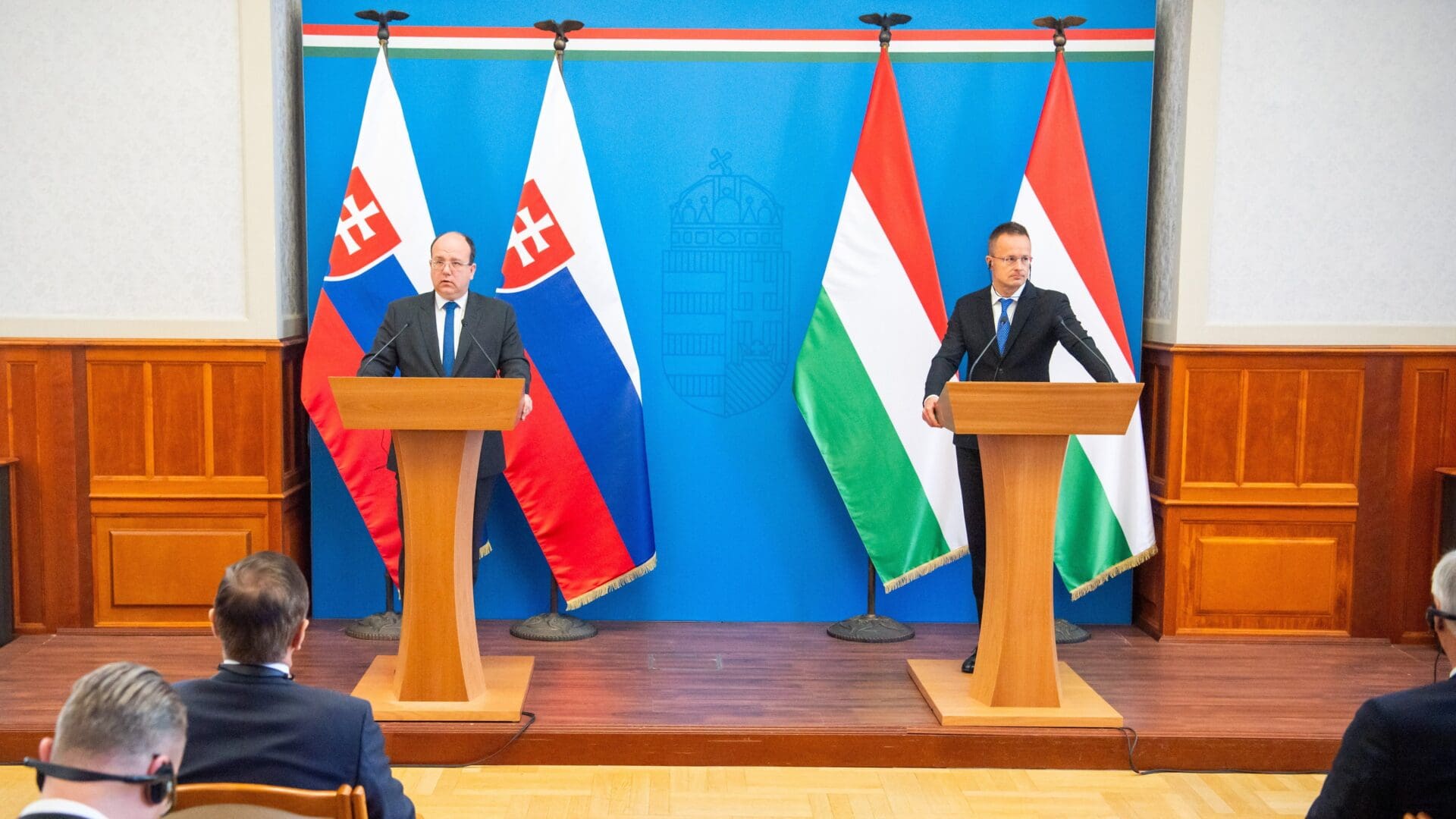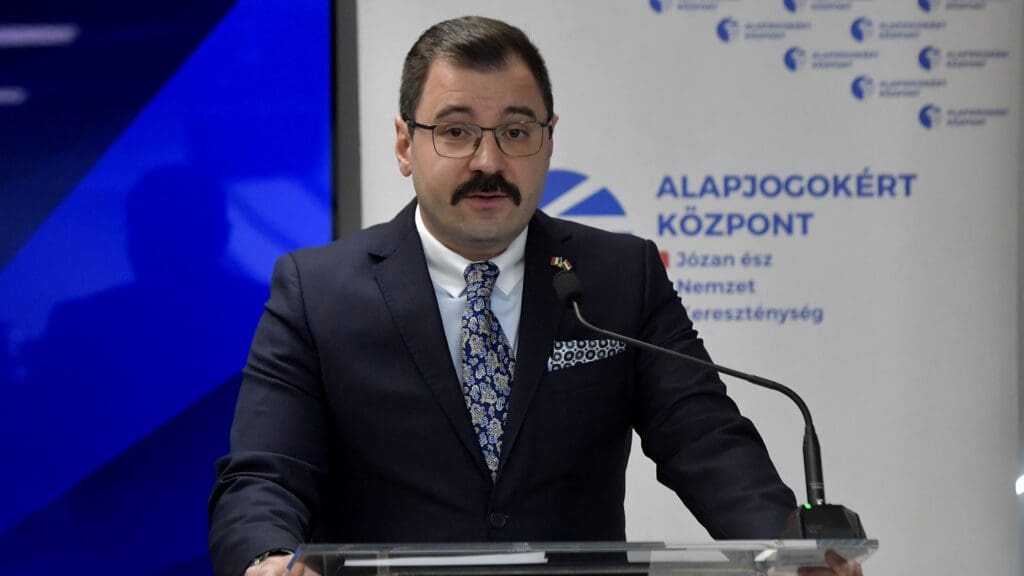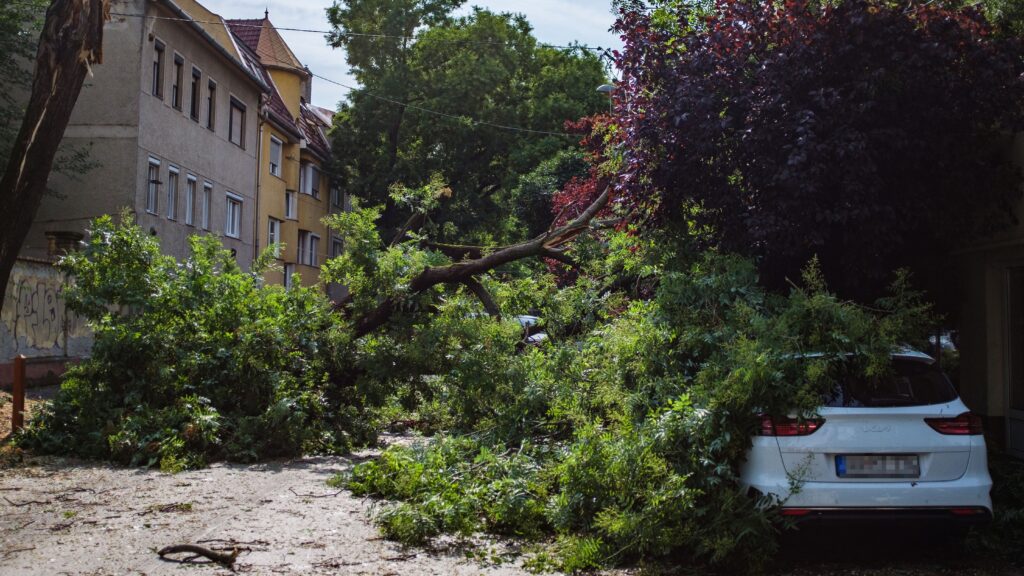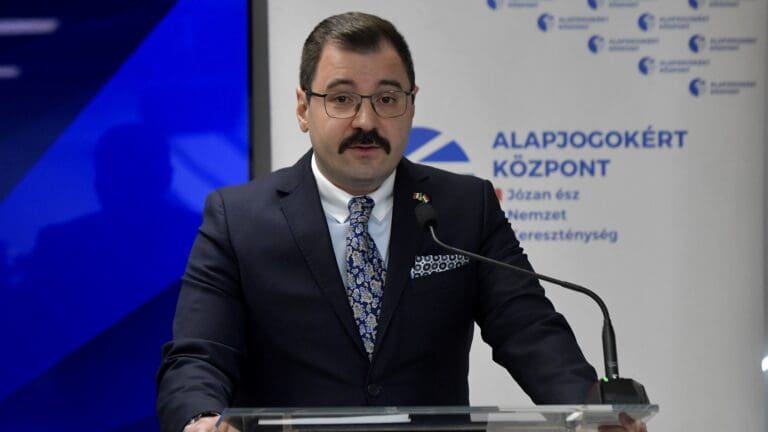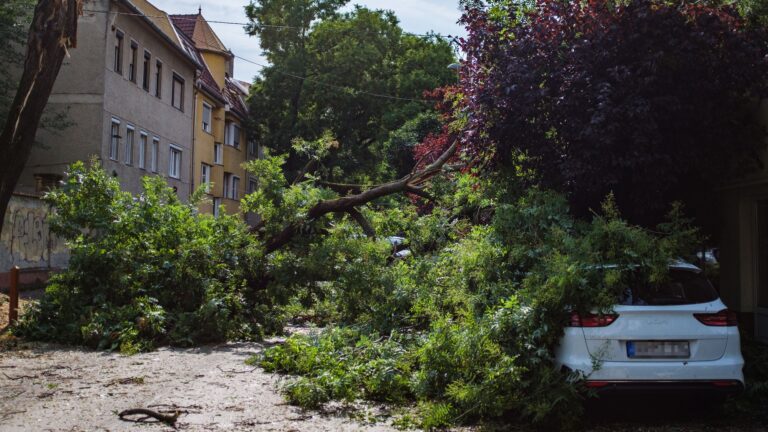One of the Hungarian government’s main goals in its foreign policy is to develop relations between Hungary and Slovakia, as there are more things that bind the two countries together than that separate them, Minister of Foreign Affairs and Trade Péter Szijjártó stated after receiving his Slovak counterpart in Budapest on Monday.
During a joint press conference with Miroslav Wlachovský, the minister emphasised that this visit also demonstrates the mutual attention and commitment dedicated to bilateral relations on both sides of the Danube. Hungary shares its longest border with Slovakia, and among neighbouring countries, Slovakia is Hungary’s main trading partner, with a significant Hungarian community living in Slovakia, he listed. He also pointed out that while in 2010 there were only 22 border crossing points between the two countries, this year the number has increased to 40. ‘This is a significant progress and a practical expression of the fact that we have more things connecting us than separating us,’ he said. ‘Therefore, in Hungary, foreign policy must always have a strategic goal of developing relations between the two countries,’ he added.
He announced that Hungary will participate in airspace defence tasks in Slovakia on a rotational basis from 1 July. ‘The more secure Slovakia is, the more secure we are, and vice versa,’ he said. He also addressed the energy supply crisis, highlighting that both countries are members of the European nuclear coalition and oppose negative discrimination against nuclear energy, which is considered
a cheap, safe, and sustainable method of electricity generation.
Both countries insist that the composition of the energy mix of member states should remain a national competence. ‘Unfortunately, we often face ideological attacks regarding nuclear energy, but we never accept them and insist on being able to use nuclear energy,’ he stated. He pointed out that the parties also assist each other in the field of electricity supply, and the interconnection of networks has been achieved in both countries.
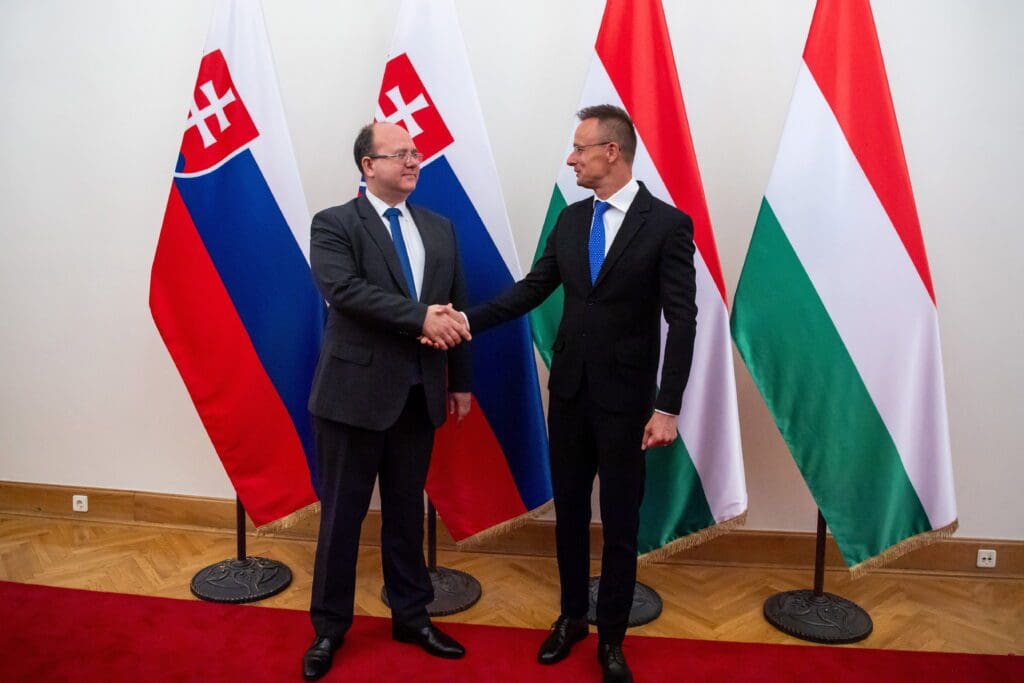
He also mentioned the European Union sanctions against Russia and warned that an important exception allowing the Slovak company Slovnaft, which belongs to the Mol Group, to sell oil products made from Russian oil in the Czech Republic will expire at the end of the year. He highlighted that the company has undertaken huge investments worth hundreds of millions of euros to make its refinery in Bratislava capable of processing oil from alternative sources, but the work still requires another year.
‘Therefore, we ask the European Union to extend this sanction exception by one year,’ he emphasised.
The minister also reported that the Croatian government, taking advantage of the current war situation, has increased transit fees on the Croatian transportation route, an emerging alternative to Russian imports, to approximately four times the market price. This puts a heavy burden on Hungarian and Slovak oil supplies, and it also hampers diversification. ‘We believe that it is unfair for someone to profit from the war situation, especially when it concerns the energy security of other countries,’ he emphasised.
Regarding the issue of migration, he stated that Hungary firmly rejects the mandatory EU resettlement quotas. ‘If we talk about solidarity, we want border protection efforts to be part of that solidarity,’ he declared. ‘Hungary has spent tens or hundreds of billions of forints to protect the external borders of the European Union, and practically received no support from Brussels,’ he lamented. At the same time, he welcomed the fact that Slovak authorities are sending police officers and border guards to assist Hungary in protecting its borders. The minister also noted that negotiations are ongoing about joint patrols to make the fight against illegal immigration and human smugglers more effective.
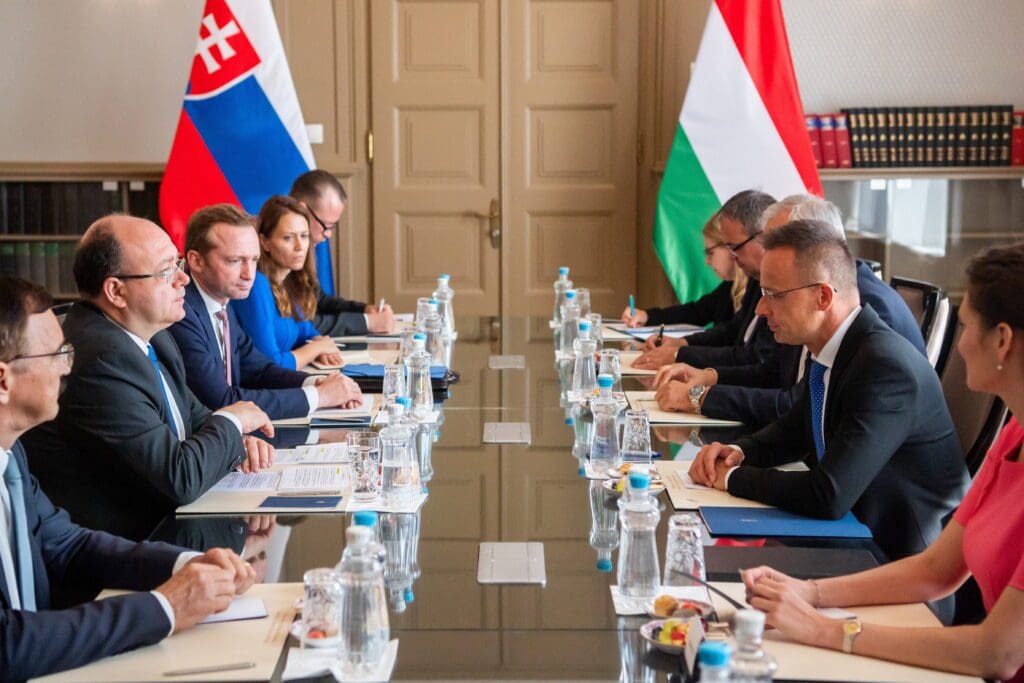
When asked about the riots in France, Péter Szijjártó wished the French authorities success in restoring order and peace. In this context, he made it clear that the Western European dream of
‘the social integration of people arriving in mass numbers, often illegally and violently, from different cultures’ has become an illusion.
‘Therefore, instead of inspiring and encouraging illegal migration, we should finally concentrate on stopping illegal migration,’ he said.
Regarding Ukraine’s possible NATO membership, the minister stated that it is out of the question for a country at war. ‘This is something that the majority of foreign ministers admit behind closed doors…but what is publicly stated is a different matter,’ he explained.
Related articles:

